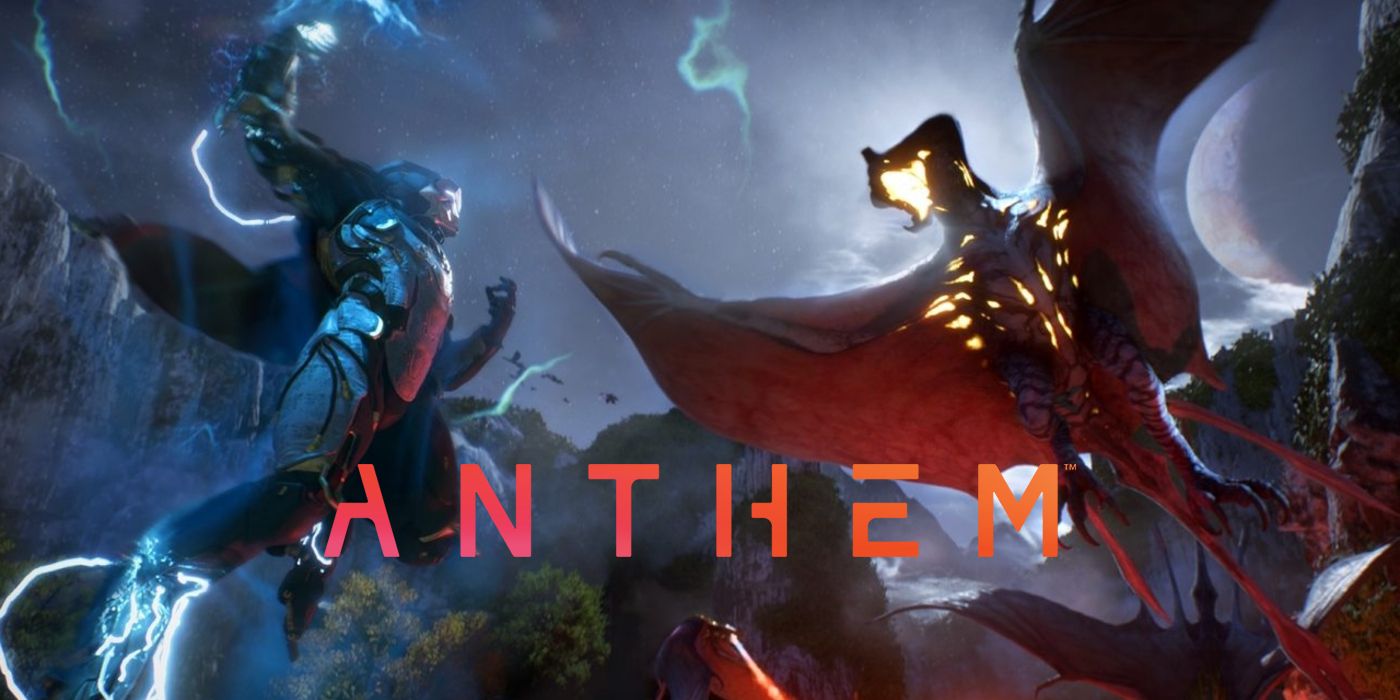Anthem, despite all evidence pointing to the contrary, actually performed pretty well from a sales perspective during its first month of release. The game topped US sales charts, and immediately became the second-most popular game of 2019 behind the much better-received Kingdom Hearts 3. Not only was Anthem successful from a monthly sales standpoint despite struggling to move physical copies, it was also close to a studio-best for developer BioWare as its second best launch month behind Mass Effect 3.
How Anthem's sales success came to be is a more fascinating story than just the numbers, though, and it could point toward a larger trend that threatens the transparency of the industry. Anthem was one of the first major releases of 2019 that failed to provide advance review copies to critics ahead of its launch. Instead, reviewers were entered into the PC early access week that was reserved for people who had purchased a subscription to Origin on top of Anthem. As such, in the week leading up to launch, Anthem was mostly reviewed as a work-in-progress, with many critics rightfully asserting that their early impressions could be off compared to the title's endgame.
Related: Don't Play Anthem Until It's A Full Game
It was pretty tough getting to the endgame, and even then, the player totals were sparse. As a result, most Anthem reviews weren't out for longer than a few days prior to the game's official launch, and those who may have been swayed were also keenly aware that 5 or 10 hours with a title's endgame content often isn't enough to make a completely accurate assessment. Despite being a shambles at launch and doing very little to improve since then, Anthem crushed its first month of sales all the same.
What does that mean? For EA and BioWare, it appears to be a lesson learned: Mass Effect: Andromeda completely tanked thanks largely to some incredibly negative review buzz, but it's hard to suggest that Anthem is a better game in any capacity (outside of face animations, sure). So the publisher/developer duo did something different with Anthem. It cut off the amount of time word could circulate about the game and ensure that, regardless of critical feedback, fans who were sold on it by the game's gorgeous E3 presentations - which weren't fully implemented into the game, by the way - would remain sold on it until they got to try it for themselves. Mike Ybarra infamously suggested that, instead of listening to critics, people interested in Anthem should listen to streamers and content creators instead - just weeks before it was revealed Ninja was paid $1 million just to play Apex Legends for a day, coincidentally by EA, who also publishes that title.
Look, there are plenty of reasons people might have picked up Anthem in spite of the early reviews that strongly indicated they should avoid it, and not all of them have the same sinister undertones as deliberately trying to mask a game's quality prior to full release. A lot of Dragon Age fans saw Anthem as, functionally, a Kickstarter campaign to get BioWare to work on the next iteration of that beloved franchise. Anthem also had an incredible amount of hype swirling around it after years of anticipation and careful glimpses into its development, buoyed by a restricted hands-on session that had many outlets reporting good things about the game. For many, their minds were made up prior to any gameplay footage even being shown, and poor reviews won't sway people who want to decide for themselves.
Those factors were definitely at play in Anthem's sales success, but it's hard to shake the lingering sense that they weren't nearly as important as the fact that EA and BioWare made sure critics couldn't get a full review out with enough time to impact pre-orders or day one purchases. We're certainly not trying to say that this was a case of a publisher and developer deliberately shipping a game both parties believed wasn't good. If anything, it's clear that BioWare really believes in Anthem, and the developer has been admirably trying to salvage it with frantic updates and community discussions ever since day one. What did happen, though, was that a game that wasn't even close to what had been promised managed to have a decent bottom line all the same.
That in and of itself isn't troubling if not for the likelihood it could become an even more predominant industry practice than it already is. Fans rely on critics to help them make decisions about where to spend their money. It's unlikely anyone who was ever a diehard fan of a game truly decided against its purchase because of a bad review, but those who are on the fence about a title and strapped for cash benefit greatly from added information. We're swiftly moving into an era where that won't be possible anymore.
Anthem is the worst-reviewed BioWare game ever, and it is being routinely shredded by its own sub-reddit. It's also the best selling game in its launch month. These two facts are no longer mutually exclusive from each other, and if publishers look at Anthem and see a safety valve for unexpectedly poor receptions, it might become a very common phenomenon over the next few years.



